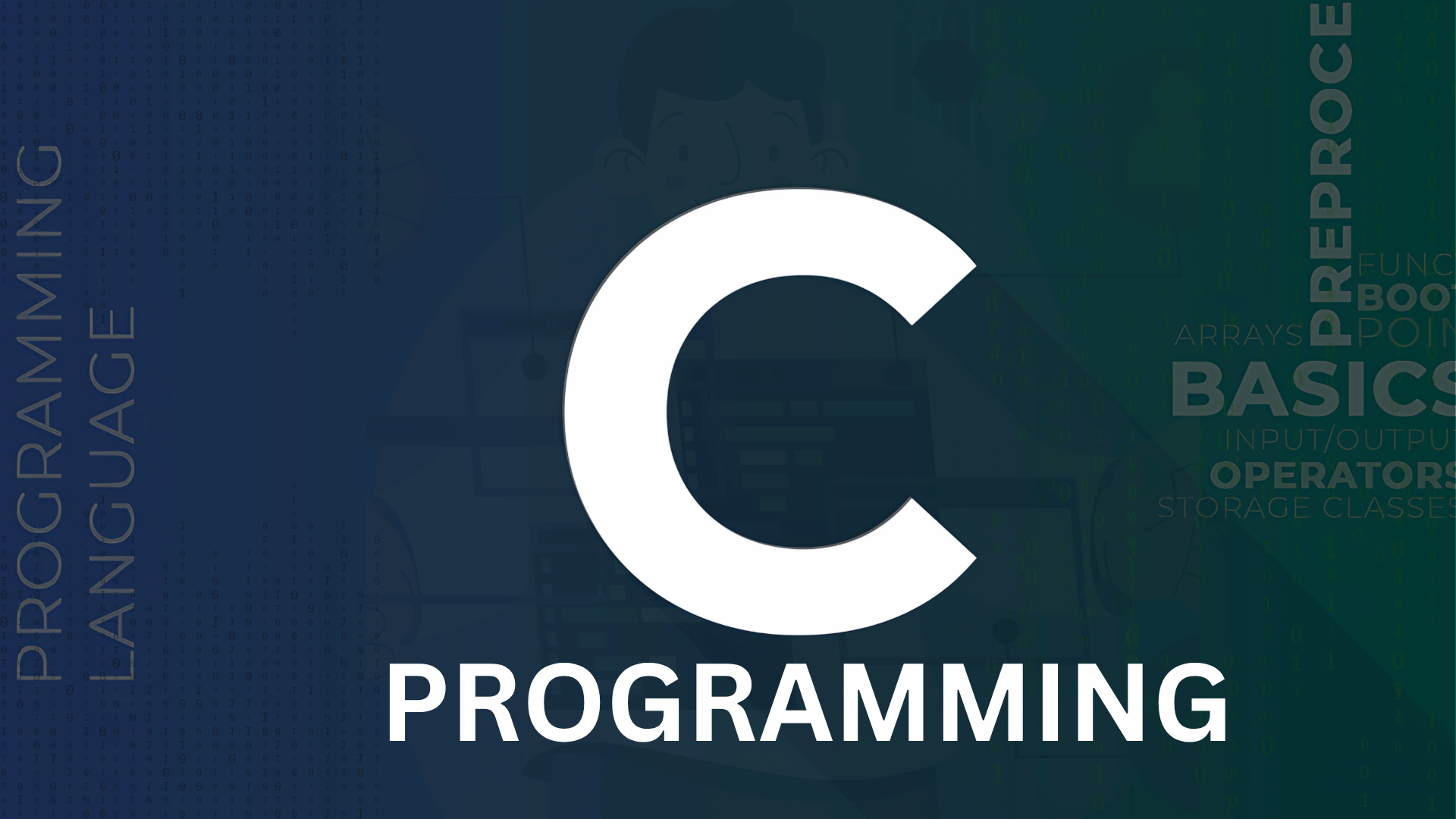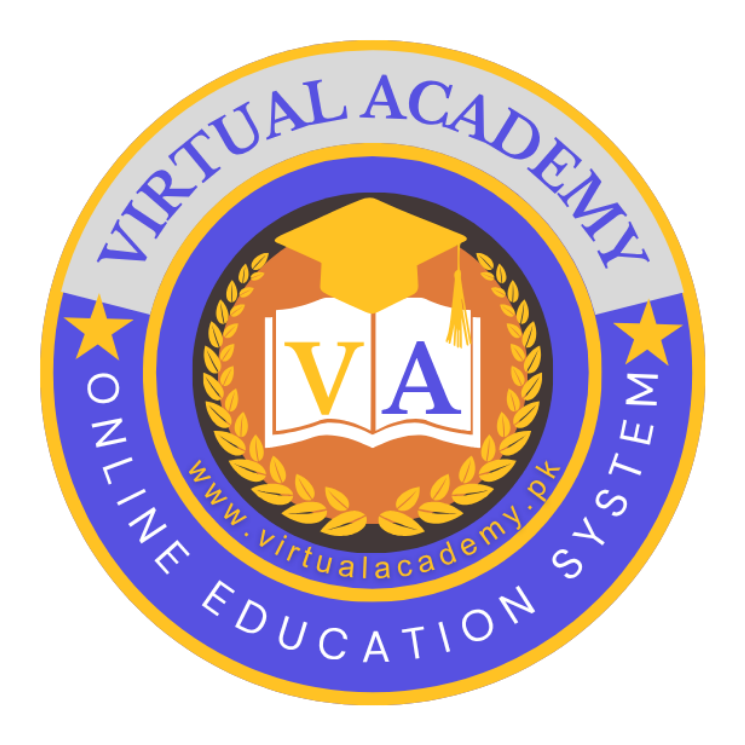
C Programming for beginner to advanced
Course Description
OVERVIEW:
After completing the C Programming Language Course (Basic to Advance) Online Video Training Course in Urdu and Hindi, you will be master of C programming language and will be able to learn other advanced level languages because C is very old language and it is a root for understanding other higher-level languages. If you learn C, you can learn C++ and other language easily.after learning, high level languages like python, ruby, etc. will be cakewalk for you. (although it is good for a beginner to first learn the basics of coding with one of these, as they are easy to understand)
This course will help you understand basic and advance concepts about C Programming Language. This course will help you learn other programming languages easily. After completing this course, you will able to make your own programming projects like, games, virtual workspace, office management system, cricket score sheet, customer billing system, student record system, telecom billing system, typing tutor, and many more. C Language provides variety of features to implement an outstanding software or you can build your own games in C Language.
INTRODUCTION:
C Programming is High Level Programming Language. It is general purpose Programming Language, which was developed by Dennis M. Ritchie at AT&T Bell Laboratories in 1972. It was written as a part of UNIX Operating System. C Language is most widely used language. We can Develop both application and system software in C Language. C is very easy to learn and it produce efficient programs. It can also handle low-level activities. C Language can be compiled on a variety of computer platforms.
PREREQUISITES:
Before starting this course, you should have a working knowledge of Following:
- Basic concept to Operate the computer
This training is compatible with Windows XP, Windows 7, Windows 8, Windows 8.1, Windows 10. MAC operating system.
CERTIFICATION:
You are hereby advised to visit www.virtualacademy.pk and get yourself certified in C Programming Basic to Advanced Training, furthermore you'll have to meet the following criteria for earning this particular Registered Certification.
- You will have to complete all 60 lessons through Virtual Academy Online Learning Management System at www.virtualacademy.pk.
- Every lesson has 3 to 5 quizzes, which you must have to pass with 70% marks.
- You need to submit your project/assignments on time.
- After completion of Virtual Academy offered C Programming Basic to Advanced Training lessons via www.virtualacademy.pk Online Learning Management System there will be final exam which comprises of 50 to 100 questions.
After having assessment of your account with www.virtualacademy.pk whether you meet all the above terms and conditions, then we will dispatch your Certificate/Diploma at your given address.
Course Contents
Getting Started with C Programming
- Introduction to Computer Programming
- History of C Language
- Features and Importance of C Language
- Types of Code
- Language Processor
- Programming Techniques
- A brief Note on IDE and Compiler
- Code block Installation
- Installation Visual Studio Code
- TDM GCC Compiler
- Questions and Answers
Environment Setup
- Code Blocks download and setup
- First User interface of Code Blocks
- Visual Studio Code download and Setup
- First User interface of Visual Studio code
- Exploring the code block and visual studio code environments
- Questions and Answers
C Programming Basic concepts
- Create and Run Your first Program
- Understanding the Basic Structure of C Program
- Arguments and return values
- Basic concept of Comments
- The Pre-processor
- The # Include statement
- Displaying Output
- Reading input form, the terminal
- Keyword and Identifiers
- Questions and Answers
Identifiers and Keywords
- Standard Identifiers
- User defined Identifiers
- Keywords
- Questions and Answers
Variables and Data Types
- Variables
- Variable Declaration
- Variable Initializations
- Scope of Variable
- Local Variable
- Global variable
- Datatypes in C Language
- Standard Data types
- User-defined Datatypes
- Integer data types
- Floating Point data types
- Char data types
- Questions and Answers
Operators
- Arithmetic Operators
- Relational Operators
- Logical OperatorsÂ
- Bitwise Operators
- Assignment Operators
- Operator Precedence
- Example of Operator Precedence
- The Cast and Sizeof Operators
- Compound Assignment Operators in C Programming Language
- Increment Operator
- Decrement Operator
- Questions and Answers
Constants
- Numeric constants
- Character Constants
- String Constants
- Integer constants
- Floating Point Constants
- Ways to Define Constants
- Questions and Answers
Format Specifiers and Escape Sequences
- Format Specifiers
- Format Specifiers uses
- Escape Sequences
- Questions and Answers
Input form User
- Getting input from user with the help of Programming
- Character Input
- Questions and Answers
Loops and Statements in C with Coding.
- IF Statement
- IF-else statement
- Multiple-IF-else statement
- Nested IF statement
- How to make simple calculator using If-else-If Statement
- Continue Statement with the help of coding
- Break statement with the helping of Coding
- Switch Statement
- How to make simple calculator using If-else-If Statement
- Selection Structure in C Language
- Loops Introduction
- Counter Loops
- Sentinel-Controlled Loops
- While loop
- Do-While Loop
- For Loop
- Nested Loop
- Questions and Answers
Arrays in C Language
- Introduction to Array
- Uses of Arrays
- Declaring One Dimensional array
- Initialization the Array
- Accessing the elements of Array
- Input and Output Value of an Array
- Searching, Sequential search and Liner Search in Arrays
- Binary Search
- Two Dimensional Arrays
- Initialization 2-D Arrays
- Accessing Individual element of 2D Array
- Reverse an array with the help of coding exercise
- Array of Structures
- Array as a member of Structures
- Declaration a Structure
- Defining structure variable
- How to use recursion with the help of coding Example.
- Questions and Answers
Pointers in C Language
- Introduction to Pointers
- Demonstrate usage of pointers in C Programming
- Working on Pointer with the help of coding
- Memory and references
- Pointer Declaration
- Pointer Initialization
- Void Pointer
- How to user Pointer with Arrays
- Questions and Answers
Functions in C Language
- Introduction to functions
- How to Create Simple Functions
- Function Declaration
- Function Definition and Function Call
- Passing parameters to a function
- Pass by Value
- Pass by Reference
- How to Return Value from Function
- How to Use Array With function
- Questions and Answers
Union and Enumerations
- Introduction to Union
- Working on Union with the help of Coding Exercise
- Introduction to Enumerations
- Working on Enumerations
- Questions and Answers
Sting in C Programming
- Introduction of String
- Uses of String in C Language
- String Declaration
- String Initialization
- How to get string input from user in C Language
- Questions and Answers
File Operations in C Programming
- Files and types of Files
- Advantages of Files
- File Pointer
- How to Open a file using FOpen Function
- Questions and Answers
Project
- Employee Record Management System
- Questions and Answers
Final Exam and Certification
Course Details
-
1. Introduction Video (Locked) 02:40 Min
-
2. Introduction to C Language & History (Locked) 07:13 Min
-
3. Types of Code & Programming Techniques (Locked) 11:51 Min
-
4. Install Code::Blocks & Create First Program (Locked) 06:23 Min
-
5. Understanding C Program Structure (Locked) 05:30 Min
-
Chapter 1 Course Introduction and Setup (Locked)
No Notes available for this chapter
-
1. Identifiers and Keywords (Locked) 08:21 Min
-
2. Datatypes and Variable Initialization (Locked) 09:37 Min
-
3. Operators in C Language (Locked) 09:34 Min
-
4. Constants and Types of Constants (Locked) 06:15 Min
-
5. Format Specifiers & Escape Sequences (Locked) 08:49 Min
-
6. Install VS Code & TDM-GCC Compiler (Locked) 05:27 Min
-
Chapter 2 Basics of C Language (Locked)
No Notes available for this chapter
-
1. Input Using scanf() – Unit Converter Example (Locked) 06:55 Min
-
2. if Statement – Selection Structure (Locked) 04:26 Min
-
3. if-else with Examples (Locked) 05:49 Min
-
4. Multiple if-else-if Conditions (Locked) 06:35 Min
-
5. Nested if Statement (Locked) 07:51 Min
-
6. Calculator Using if-else-if (Locked) 08:19 Min
-
7. Switch Statement with Examples (Locked) 06:07 Min
-
8. Calculator Using Switch Statement (Locked) 06:34 Min
-
Chapter 3 Input, Selection & Conditions (Locked)
No Notes available for this chapter
-
1. Character Input – getch() & getche() (Locked) 07:31 Min
-
2. sizeof() Operator (Locked) 04:11 Min
-
3. Compound Assignment Operators (Locked) 05:02 Min
-
4. Increment Operator – Prefix & Postfix (Locked) 04:10 Min
-
5. Decrement Operator – Prefix & Postfix (Locked) 05:31 Min
-
Chapter 4 Operators & Character Input (Locked)
No Notes available for this chapter
-
1. Introduction to Loops – Counter & Sentinel (Locked) 04:39 Min
-
2. While Loop with Examples (Locked) 06:03 Min
-
3. Do-While Loop Examples (Locked) 07:42 Min
-
4. For Loop with Coding Practice (Locked) 07:15 Min
-
5. Continue Statement (Locked) 06:00 Min
-
6. Break Statement (Locked) 06:18 Min
-
7. Nested Loops (Locked) 06:25 Min
-
Chapter 5 Loops in C Programming (Locked)
No Notes available for this chapter
-
1. Introduction to Arrays – 1D Array (Locked) 05:59 Min
-
2. Array Initialization & Accessing Elements (Locked) 07:55 Min
-
3. Input and Output in Arrays (Locked) 07:53 Min
-
4. Searching in Arrays (Locked) 07:55 Min
-
5. Binary Search (Locked) 11:33 Min
-
6. Two-Dimensional Arrays (Locked) 11:26 Min
-
7. Reverse an Array (Locked) 07:39 Min
-
Chapter 6 Array in C (Locked)
No Notes available for this chapter
-
1. Structure Declaration & Variables (Locked) 08:48 Min
-
2. Arrays as Members of Structures (Locked) 09:44 Min
-
3. Union with Coding Exercise (Locked) 11:14 Min
-
4. Enumerations in C (Locked) 04:59 Min
-
Chapter 7 Structures, Union & Enums (Locked)
No Notes available for this chapter
-
1. Introduction to Pointers (Locked) 08:28 Min
-
2. Void Pointers in C (Locked) 07:16 Min
-
3. Using Pointers with Arrays (Locked) 07:52 Min
-
Chapter 8 Pointer in C (Locked)
No Notes available for this chapter
-
1. Introduction to Functions (Locked) 06:30 Min
-
2. Function Declaration (Locked) 05:37 Min
-
3. Function Definition & Calling (Locked) 06:48 Min
-
4. Passing Parameters to Functions (Locked) 05:05 Min
-
5. Pass by Reference (Locked) 10:07 Min
-
6. Returning Values from Functions (Locked) 04:28 Min
-
7. Variable Scope (Locked) 07;24 Min
-
8. Using Arrays with Functions (Locked) 06:41 Min
-
9. Recursion in C (Locked) 07:24 Min
-
Chapter 9 Functions in C (Locked)
No Notes available for this chapter
-
1. String Handling in C (Locked) 05:16 Min
-
2. Get String Input from User (Locked) 05:49 Min
-
3. File Handling Basics (Locked) 04:50 Min
-
4. File Pointer in C (Locked) 08:37 Min
-
Chapter 10 Strings, Files, and Projects (Locked)
No Notes available for this chapter
-
1. Project A – Employee Record System (Locked) 15:15 Min
-
2. Project B – Employee Record System (Locked) 17:15 Min
-
3. Project C – Employee Record System (Locked) 02:19 Min
-
Chapter 11 Project – employee Record System (Locked)
No Notes available for this chapter












